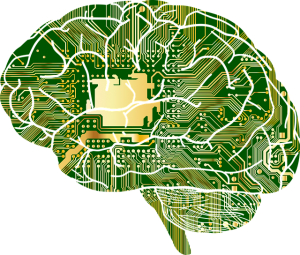Artificial Intelligence in Healthcare

We use AI, or Artificial Intelligence, every day. Whenever you pay your cable bill online and a chat box pops up asking if you need help, that’s AI. When you order your lunch straight from your phone instead of going out to pick it up, you are using AI. Artificial intelligence even shapes what ads you are exposed to on Facebook. Artificial intelligence seeps into almost every aspect of our online lives, but falls short when it comes to healthcare. The reason for this is HIPPA.
What Is HIPPA?
HIPPA stands for the Health Insurance Portability and Accountability Act,which protects our personal healthcare information. The law helps prevent fraud and abuse, implement industry-wide standards, and help transfer/continue health insurance coverage for workers and their families when they change or lose their jobs. However, HIPPA creates some limitations in the world of AI.
What Is Artificial Intelligence?
AI allows machines to analyze situations and learn from them. Computers can take large amounts of data and perform specific tasks with more accuracy than a person would ever be able to do. Furthermore, computers can adjust to new inputs lightning quick and recognize patterns. They are constantly improving their processes. Some trending examples of artificial intelligence are self-driving cars and human-like robots. In the medical field, there are enormous opportunities for AI. Tech giants such as Apple, Google and Amazon are already capitalizing on these opportunities. Deep learning and image recognition allows AI to pinpoint cancer on an MRI with the same accuracy as an expert radiologist.
Where the Two Collide
For artificial intelligence algorithms to work properly, it has to analyze huge amounts of data. The more data they are exposed to, the better the results. The problem is that HIPPA locks up data and makes it nearly impossible to share. It is hard to share healthcare information among devices, and with AI. For now, AI will be restricted to assisting in the doctor’s office, opposed to at the information sharing level.
How Can We Utilize Artificial Intelligence in Healthcare?
Artificial intelligence can detect certain conditions with facial recognition technology, read x-rays, and mine text data. This gives any doctor access to the knowledge of specialists around the world. Along with image recognition, AI can look for patterns in the text it reads. For example, Facebook uses the technology to scan posts to predict users that may be at risk for suicide. Scientists have invented chatboxes that can help people who don’t have the time or money to see a psychiatrist. They have found that people are more comfortable opening up to a machine rather than a person. AI makes it easier to fine tune medical devices, such as artificial hands and hearing aids.
The possibilities of artificial intelligence are endless, as the technology continues to learn and advance. As we explore the opportunities within the healthcare industry, there will be challenges on monitoring and regulating AI, but it will be well worth it in the end.
For more insight on technological advancements in the healthcare field, follow us on social media!



